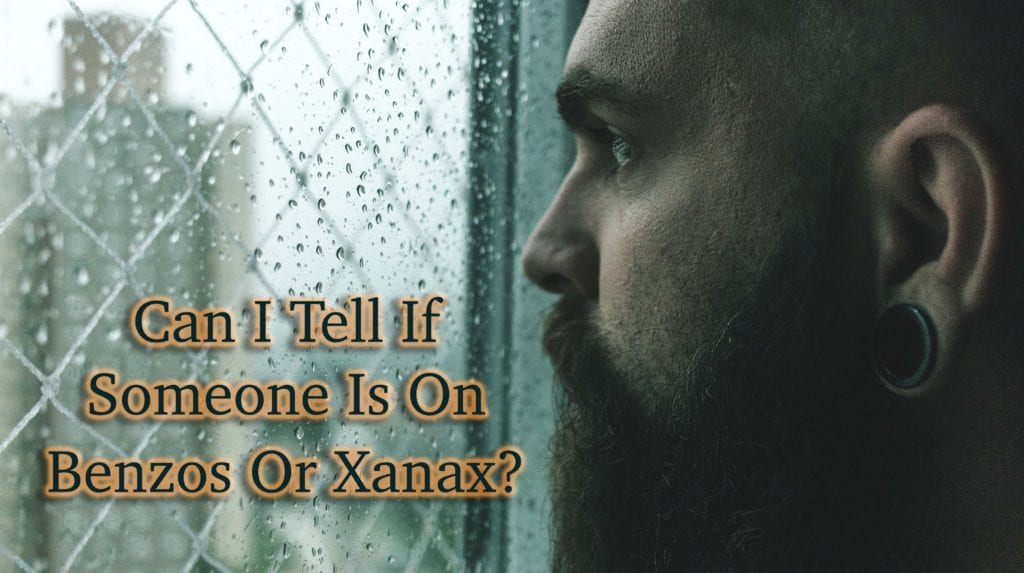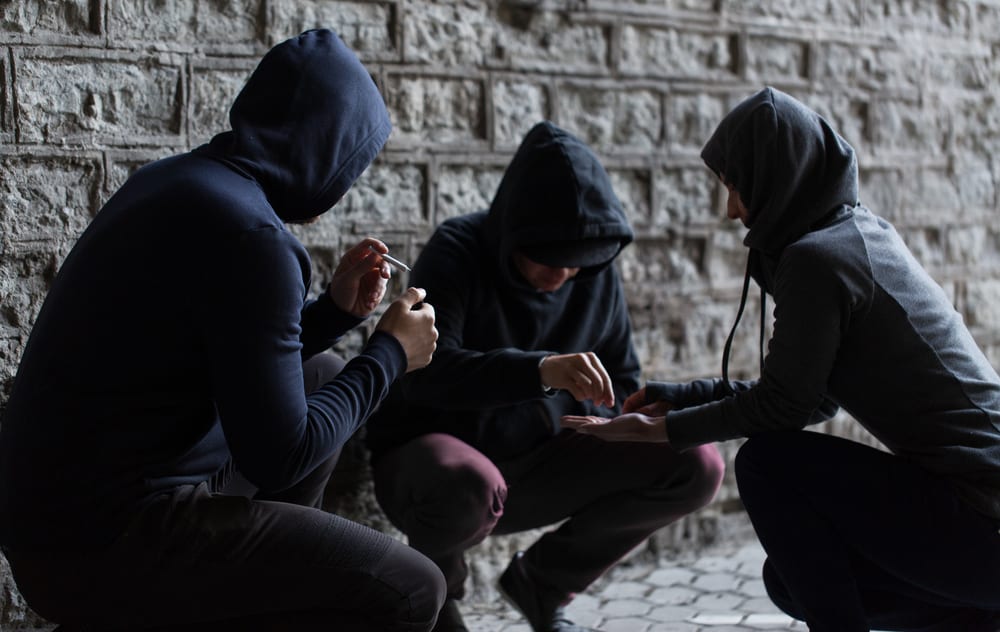
Benzodiazepines are type of powerful pharmaceutical drug, typically prescribed to treat anxiety and a variety of other mental health ailments. Treatment with these types of drugs can also be used for panic attacks, seizures and as a sleep aid for people suffering from insomnia. In extremely rare circumstances, Xanax has been prescribed to patients to ease withdrawal symptoms resulting from an alcohol or drug addiction. Benzos like Alprazolam are commonly referred to on the streets by their brand name: Xanax. “Xanny bars,” or “zanny planks,” totem poles, white girls and blue footballs are all street names for this class of drugs. The benzodiazepine family of prescription drugs also includes Klonopin,
Librium, Ativan and Valium. The “date rape drug” Rohypnol is also a form of benzodiazepine. They are often among the most commonly abused pharmaceutical drugs, on par with prescription opioids like Vicodin, Percocet and Oxycontin. One of the most common questions surrounding the field of substance abuse treatment is how to tell if someone is abusing a particular drug. Xanax is commonly known for its relaxing effects on the human brain. Many people begin abusing this drug after it is prescribed to them by their doctors. When people use these medications to get high, they will often mix them with other prescription drugs like opioids, marijuana and even alcohol, as it is perceived to increase the drug’s pleasurable effects. People who are addicted to stimulants like cocaine and methamphetamine will often use benzodiazepines to help them sleep after a long coke or meth binge. Excessive abuse of benzos like Xanax can lead to respiratory failure, coma heart attacks and even death.
Fentanyl is commonly found in street versions of Xanax and there have been numerous reported cases of people dying after taking just one dose of Xanax. In addition to these dangers, Xanax can become highly addictive when taken at a high dose, over a long period of time. This addiction to benzos can be difficult to get over for many people as the acute withdrawal symptoms are often very painful and difficult to manage.
So what are the signs that a family member, close friend or loved one may be abusing Xanax?
Quite often whether used as prescribed by a doctor, or as an illicit substance people on benzodiazepines exhibit quite a few distinct signs of use.
- Often seeming drowsy, sleepy or a general state of constant sedation.
- Confusion, dizziness, nausea and vomiting.
- Feeling light-headed.
- Excessive sleeping, often for a long, unexplainable amount of time.
- Concentration problems and frequent memory loss.
- Slurred, slow speech.
- Declined physical coordination, stumbling around.
- Dry mouth.
- Psychosis.
- Lack of motivation and general loss in personal interests.
These symptoms will obviously vary from person to person, so it is good to look for a combination of these symptoms if you suspect a friend or family member of Xanax abuse.
It is important to note that abusing Xanax and benzos will look quite different than a full-fledged chemical dependency on the substance. Some people who experience addiction to Xanax could be taking upwards of 20 pills each and every day. Most teens who become addicted to the drug say they started by using what they could find in their home medicine cabinets. Since Xanax is a fast-acting drug, it can lead to taking higher doses at a much faster pace. This increases the dangers of developing an addiction, even for people who are prescribed the drug by their doctor. Just like many other types of addictions, an addiction to Xanax will affect nearly every aspect of the person’s life. A typical addict will let their personal relationships deteriorate, while often isolating themselves socially.

Job loss, financial hardship and legal troubles are common with those who are addicted to benzos. Developing a chemical dependence on Xanax can lead to many dangerous situations. Since benzodiazepines are sedatives, it is generally unsafe to operate an automobile, even when on a prescribed dose from a doctor. Physical problems are likely to occur after prolonged use, such as musculoskeletal deterioration, memory loss, depression with suicidal thoughts and a multitude of gastrointestinal issues. In some circumstances, an overdose on Xanax can cause a person to enter a coma or even die from the overdose.
In 2017, benzodiazepines were present in the system of 11,537 Americans who died from a drug overdose. –National Institute on Drug Abuse (NIDA)
Since many people who abuse benzodiazepines often mix the high with other drugs that are commonly abused, most people who enter treatment are often suffering from addiction to multiple substances. Treatment for addiction to Xanax and other benzos is often a very nuanced process with severe side effects and withdrawal symptoms. It is never recommended to quit abusing benzodiazepines “cold-turkey”. It is highly advised that an addict or someone who has used Xanax or other benzos, do so under close medical supervision.
The withdrawal symptoms alone can be lethal to someone who had built up a tolerance and was taking a lot of the substance over a long period of time. If prescribed by a doctor, the procedure for stopping use will be to slowly taper-off doses in incremental amounts.

This will help mitigate the severe withdrawal symptoms. For addicts who undergo an inpatient treatment program at a drug rehab center the process is going to be specialized to suit your individual needs. If you have a family member or loved one who you suspect is struggling with any type of addiction, and intervention may be necessary for them to address their potentially deadly substance use disorder. Most people won’t want to admit they have an addiction, but they will be glad to see that someone in their life cares about them deeply enough to get them help.
Overcoming an addiction to Xanax or other benzodiazepines is not easy, yet people do it every day. 10 Acre Ranch offers a full medical detox and recovery program that will help you, every step of the way. Call us today to speak with an addiction specialist and we can get you, your family member or loved one the help they need right away. We are open 24/7:
877-228-4679






